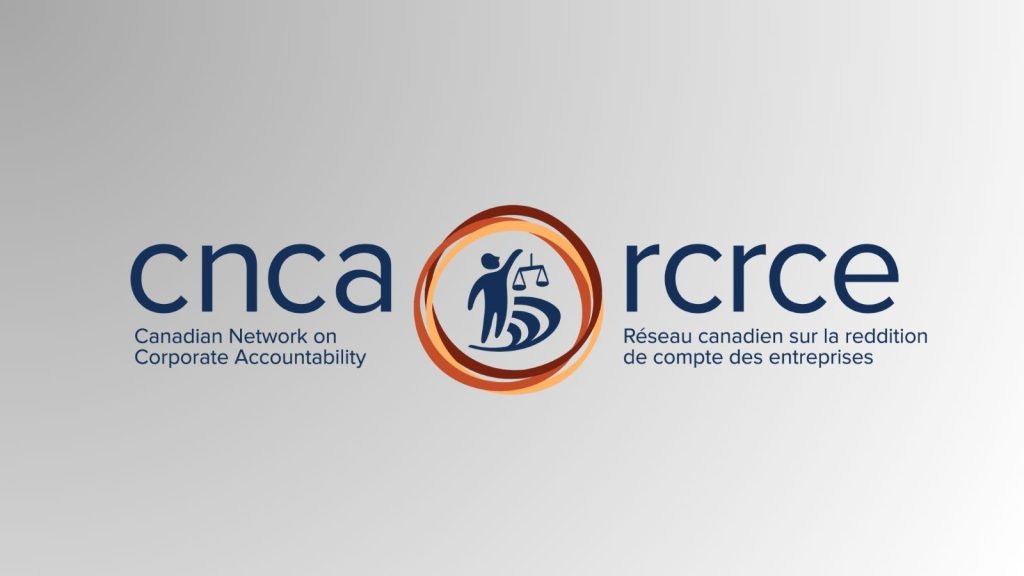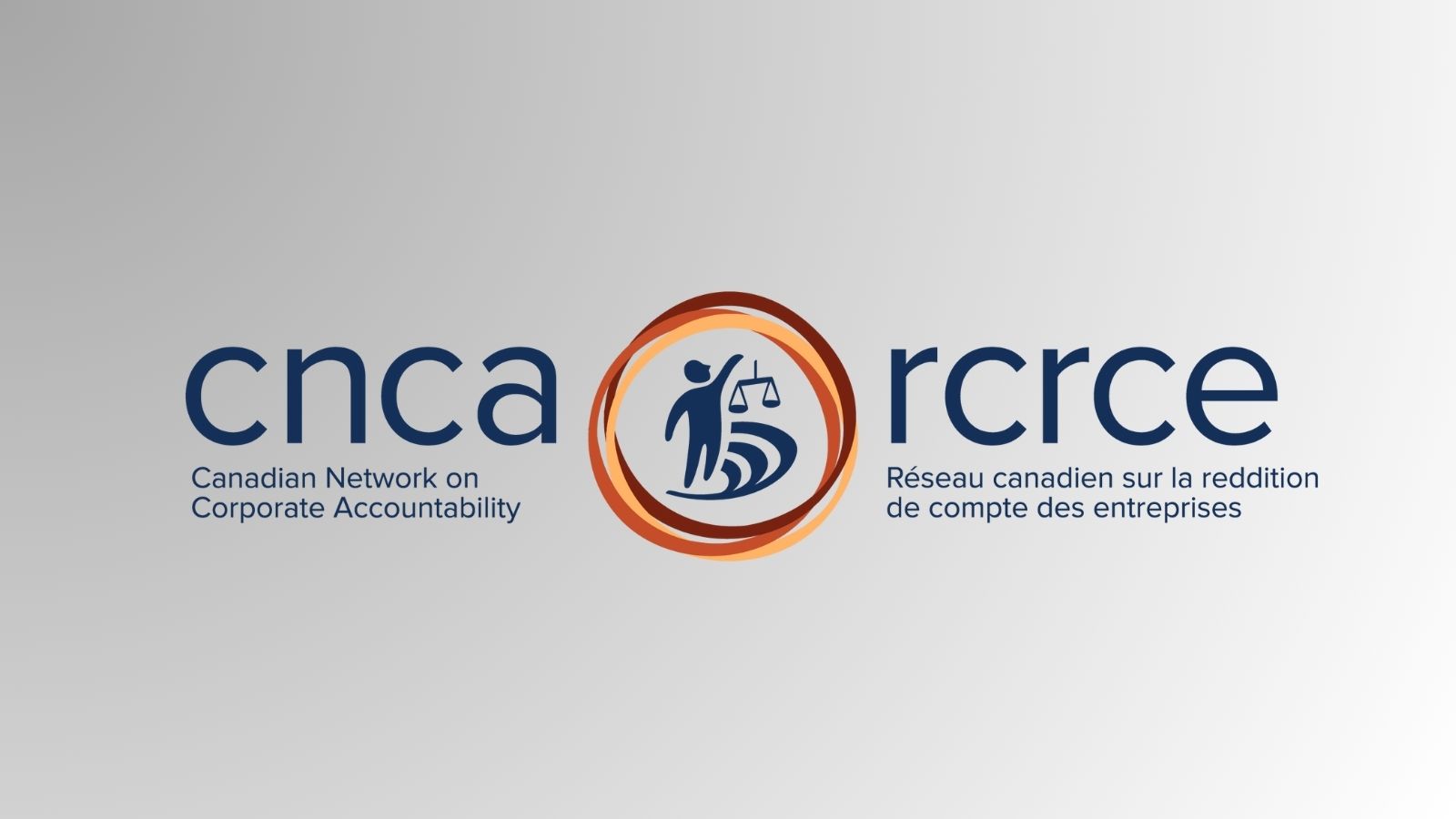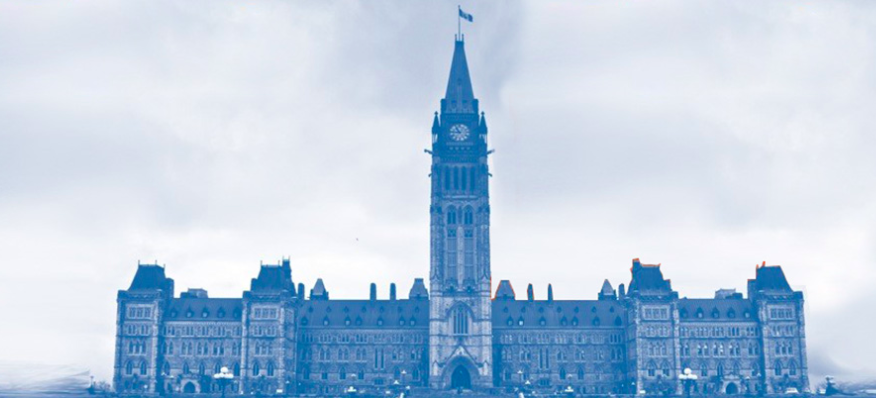In this Submission, the Canadian Network on Corporate Accountability and the Polaris Institute called on the Economic, Social and Cultural Rights (ESCR) Unit of the Inter-American Commission on Human Rights to include business and human rights in the mandate of the new ESCR Special Rapporteur.
Read the full submission here (PDF)
===
Introduction
The Canadian Network on Corporate Accountability (CNCA) and the Polaris Institute welcome the decision of IACHR’s ESCR Unit to appoint a Special Rapporteur on economic, social and cultural rights. For the reasons we outline below, we strongly encourage the ESCR Unit to include business and human rights in the Special Rapporteur’s mandate.
Business has a profound impact on human rights. The UN Secretary-General’s Special Representative on Business and Human Rights noted that business operations impinge on all rights, including ESC rights. [1] According to Amnesty International, governments’ failure to ensure that business respect human rights has resulted in populations being exposed “to danger through pollution, and to exploitation through denial of the right to a fair wage and decent working conditions”. Moreover, large-scale private sector development projects often result in “widespread homelessness and violation of indigenous peoples’ rights”. [2] These violations persist, despite extensive endorsement of the UN Guiding Principles on Business and Human Rights, which articulate the international obligation of states to “respect, protect and fulfil human rights and fundamental freedoms” and the responsibility of companies “to comply with all applicable laws and to respect human rights”. [3]
The global operations of Canada’s oil, gas and mining companies are of particular concern. The IACHR has held multiple hearings on this issue, receiving submissions from a diversity of actors on the human rights impacts of Canadian multinationals in the Americas.
In 2013, civil society groups from across Latin America presented the IACHR with a study of 22 large-scale Canadian mining exploration and extraction projects in the region. Their findings point to “serious environmental, economic, social, and cultural harms” involving Canadian companies. [4] They also identify Canadian policies that contribute to the negative impact of the mining industry. [5]
At a thematic hearing before the IACHR in 2014, the CNCA argued for the adoption of measures to address two issues:
- Canada’s promotion of the large-scale mining industry in Latin America through political, economic and legal support, and its failure to put into place effective mechanisms to ensure corporate and state accountability.
- The failure of voluntary standards and measures to provide effective recourse and remedies for victims of the negative human rights and environmental impacts of mining. [6]
During the hearing, Commissioner Rose-Marie Antoine, former head of the ESCR Unit, made the following comment: “Despite the assurances of Canada that there is good [corporate social responsibility] policy, we continue at the Commission to see a number of very, very serious human rights violations occurring in the region as a result of certain countries, and Canada being one of the main ones […]. So we are seeing deficiencies of the policy.” [7] Commissioner Antoine then asked Canada to better explain the mechanisms it employs to monitor companies. [8] Canada requested time to reply in writing. [9] To our knowledge, Canada has not yet replied.
In 2015, representatives of the Catholic Church were also granted a hearing before the IACHR. They presented the Church’s position on human rights and extractive industries in Latin America. Members of the Catholic Church delegation demanded accountability for Canadian mining companies operating in the region [10] and attested to “the anguish and suffering of many brothers and sisters who in some circumstances are suffering the consequences of a devastating and increasingly threatening extractive activity that has no human face or ethics”. [11]
Despite the attention of international authorities, and the sustained efforts of policy-makers, legislators and civil society actors in Canada, the Canadian government has failed to fulfill its duty to protect against human rights abuse by Canadian multinationals. [12] The petitioners strongly encourage the IACHR Special Rapporteur on ESCR to continue the important work that the IACHR has carried out regarding human rights and multinational corporations.
===
Read the full submission here (PDF)
===
ENDNOTES
- UN SGSR on Business and Human Rights, “United Nations Guiding Principles on Business and Human Rights”, UN Document A/HRC/17/31 (Geneva: United Nations, 2011) at 14 [UN SCSR].
- Amnesty International, “Human Rights for Human Dignity”, 2nd ed (London, UK: Amnesty International, 2005) at 17.
- UN SCSR, supra note 1 at 1.
- Working Group on Mining and Human Rights in Latin America, “The Impact of Canadian Mining in Latin America and Canada’s Responsibility: Executive Summary of the Report Submitted to the InterAmerican Commission on Human Rights” (2013) at 10, online: Due Process of Law Foundation <http://www.dplf.org> [Working Group].
- Ibid at 25-29.
- CNCA, “Human Rights, Indigenous Rights and Canada’s Extraterritorial Obligations” (Submission to Thematic Hearing for 153rd Period of Sessions, IACHR, 28 October 2014) at 2 [CNCA].
- IACHR, “Impact of Canadian Mining Activities on Human Rights in Latin America”, 153 Period of Sessions (28 October 2014), video recording at 53:42, online: OAS <http://www.oas.org>.
- Ibid at 55:50.
- Ibid at 1:07:18.
- Michael Swan, “Make Mining Companies Accountable, Bishops Demand”, The Catholic Register (25 March 2015), online: The Catholic Register <http://www.catholicregister.org>.
- IACHR, Press Release, “IACHR Wraps Up its 154th Session” (27 March 2015), online: OAS <http://www.oas.org>.
- CNCA, supra note 6 at 13-14.
To read the full submission, please click here.





